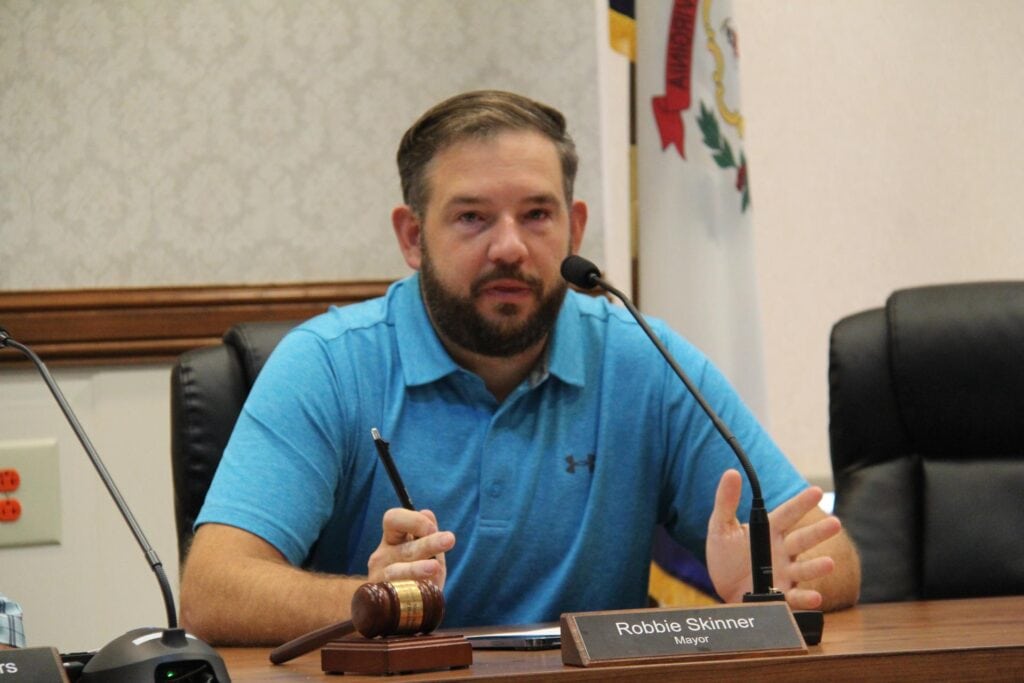This story was originally published by Mountain State Spotlight. For more stories from Mountain State Spotlight, visit www.mountainstatespotlight.org.
By Lauren Peace and Erin Beck, Mountain State Spotlight
West Virginia’s drug overdose crisis is getting worse.
But instead of working on legislation to address root causes and increase access to treatment and overdose reversal medication, West Virginia lawmakers spent the session focused on bills that experts and advocates say will make things worse for some of the most vulnerable West Virginians.
“People are hurting and there’s things we could be doing to help them,” said JoAnna Vance, a recovery coach and advocate for the West Virginia Recovery Advocacy Project. “But we spent the majority of our energy this legislative session fighting bad bills.”
According to preliminary data from the U.S. Centers for Disease Control and Prevention, overdose deaths in West Virginia were up more than 40% from August 2019 to August 2020. The West Virginia Department of Health and Human Resources did not respond to requests for comment on those numbers.
It’s a devastating increase in a state that has had the nation’s highest overdose fatality rate for more than a decade.
“[The pandemic has caused] increased stress, anxiety and depression for everybody,” said Jon Dower, the executive director of West Virginia Sober Living. “It’s exponentially worse for people living with substance use disorders because they are dealing with a myriad of extra complications to an already complex disease.”
Dower said now that we’re coming out of the pandemic, emphasis should be on increasing support services for people experiencing addiction, through funding initiatives for peer and community-based recovery, expanding access to medication-assisted treatment and harm reduction services.
But instead, lawmakers passed several bills that experts say will do the opposite.
Senate Health and Human Resources Chairman Mike Maroney, R-Marshall, and House Health and Human Resources Chairman Jeffrey Pack, R-Raleigh, did not respond to multiple requests for comment.
Regressive policy instead of solutions
Two bills most avidly opposed by experts in addiction and recovery advocates this session originated in the Senate.
Senate Bill 334, sponsored by Sen. Eric Tarr, R-Putnam, places restrictions on harm reduction programs that contradict best practices set by the CDC, and make services more difficult to access for people living with substance use disorders.
Harm reduction programs — including syringe access — help prevent the spread of disease and infection that can arise when people share or reuse needles when injecting drugs. In West Virginia, where rates of HIV, hepatitis C and endocarditis are high, these programs are especially important.
But beyond preventing the spread of disease, experts say harm reduction programs provide a crucial point of connection to people living with addiction. They connect people with other medical services, increase access to overdose reversal medications and make it more likely that a person living with a substance use disorder will enter treatment.
Neighboring states impacted by the opioid epidemic, like Ohio and Kentucky, have taken steps to increase access to these programs over the last few years. Kentucky was the first state in the southern part of the U.S. to formally legalize syringe exchanges and at one point led the nation in the number of syringe access programs. In Ohio, there are efforts to increase access to these programs and safe injection supplies.
But the bill passed in West Virginia will drastically restrict almost all of the programs currently operating in the state, and could result in the suspension of services in many West Virginia counties. That’s because of new costly requirements that may be unattainable for rural counties, as well as the required approval of local governing authorities.
Medical professionals, recovery coaches and experts in treating substance use disorders are calling on Gov. Jim Justice to veto the bill.Senate Bill 387, sponsored by Maroney, is set to continue a state program that requires people to take a drug test before they can get temporary cash assistance to support children. If the drug test comes back positive, the person must either agree to treatment or forgo the cash assistance.
The bill’s supporters say it’s meant to ensure people who need treatment get it. But since it began in 2017, only one person has completed treatment following a positive test.
“The evidence shows us that for people to get treatment, it should be voluntary and non- coercive, because that’s how they are more successful and less likely to relapse,” said Jennifer Oliva, a professor and director of Seton Hall University’s Center for Health and Pharmaceutical Law.
What could have helped?
Rather than spend time on restrictive policies rooted in stigma, experts say that legislators could have focused on solutions to the overdose crisis, including increasing access to support services for West Virginians living with substance use disorders.
“The science is very clear about what works to address overdoses,” said Leo Beletsky, a professor of law and health sciences at Northeastern University.
Beletsky said there are three major actions that can be taken to address the crisis.
The first is expanding access to overdose reversal medications like naloxone, so that when people overdose, they don’t die — as well as expanding knowledge around Good Samaritan laws. These laws, which exist in 40 states including West Virginia, shield people from criminal penalty if they administer naloxone or call for help in the event of an overdose.
In West Virginia, syringe access programs play a major role in naloxone distribution, giving out thousands of doses a year, but with SB 334 likely to be signed by Gov. Jim Justice, program coordinators say those efforts will be hampered.
Additionally, Beletsky said providing access to fentanyl testing strips — which allow people who use drugs to check for fentanyl, the substance linked to a growing number of overdoses — would likely help. Federal funds can now be used to buy these strips and some law enforcement agencies around the country are now providing them to help curb the number of overdoses.
The second possible action, according to Beletsky, is expanding access to medication-assisted treatment, like methadone and buprenorphine.
According to the U.S. Substance Abuse and Mental Health Services Administration, buprenorphine saves lives, reduces overdoses, eases cravings, and can help people kick the deadly street drug heroin, or the even more powerful fentanyl. When combined with naloxone, buprenorphine is referred to as Suboxone.
“We know that with opioids, methadone and buprenorphine cut overdose rates by 50-80%,” Beletsky said. “But there’s a huge gap in how many people who need access to those medications and how many people have access to those medications.”
In West Virginia, the situation is especially complicated because of federal, state and local level barriers that prevent the prescription of these medications and a shortage of local providers.
While the federal government has worked to increase access to medication-assisted treatment with additional funding in recent years, and availability has increased, a state law that put in place several new regulations on these treatments, such as requiring a specific license for prescribing buprenorphine, remains in place.
A 2019 study found that even in areas where licensed providers were located, people on Medicaid or without insurance still struggled to get appointments.
Lawmakers made no changes to the state’s medication-assisted treatment law this year and did not take action to expand access to these treatments.
Beletsky says the third step — and the most difficult — would be addressing the structural drivers of addiction, like hunger, poverty and economic upheaval.
“It’s arguably, one of the reasons that West Virginia has been so hard hit,” Beletsky said. “But instead of addressing these socioeconomic drivers, lawmakers introduced legislation like [SB 334]. It’s the wrong prescription for the problem.”
Small steps toward addressing a big problem
While lawmakers cut the funding of some state agencies and programs by 1.5% in this year’s budget, the state Department of Health and Human Resources, which includes the state Office of Drug Control Policy and the Bureau for Behavioral Health, was spared that cut. Lawmakers allocated an additional $500,000 toward free clinics, which frequently serve those with substance use disorders.
But in an interview Tuesday, Sen. Ron Stollings, a doctor and Democrat who represents Boone County, said all the focus was on needle litter instead of proactive solutions.
“No one wants this stuff in the backyard,” he said, referencing needle exchange programs and problems that are associated with drug use, like crime and homelessness. “We have to own the problem. And we have to try to deal with the problem.”
Democrats also criticized Republicans for failing to fully fund the governor’s Jobs and Hope program, which helps people in recovery find jobs, go to school, and get criminal records expunged, but Republicans argued that money allocated last year went unspent.
Some bills were touted as efforts to address addiction.
But House Bill 2918, which makes a family drug court pilot program permanent, did not include a fiscal note, which would indicate the state does not plan to put new funds toward expansion. The bill also simply permits courts to begin those programs; it does not require them.
And Senate Bill 658, also called the “Handle with Care” bill, simply says police “may” notify schools when a child has had police called to their house the night before. Adverse childhood experiences, like domestic violence or having a parent with substance use disorder, are associated with addiction later in life.
Meanwhile, Stollings said lawmakers rejected efforts that could have helped root issues, including an attempt to create an economic diversification plan for struggling coal communities. The West Virginia Coal Association was against that effort.
Reach reporter Lauren Peace at laurenpeace@mountainstatespotlight.org
Reach reporter Erin Beck at erinbeck@mountainstatespotlight.org













